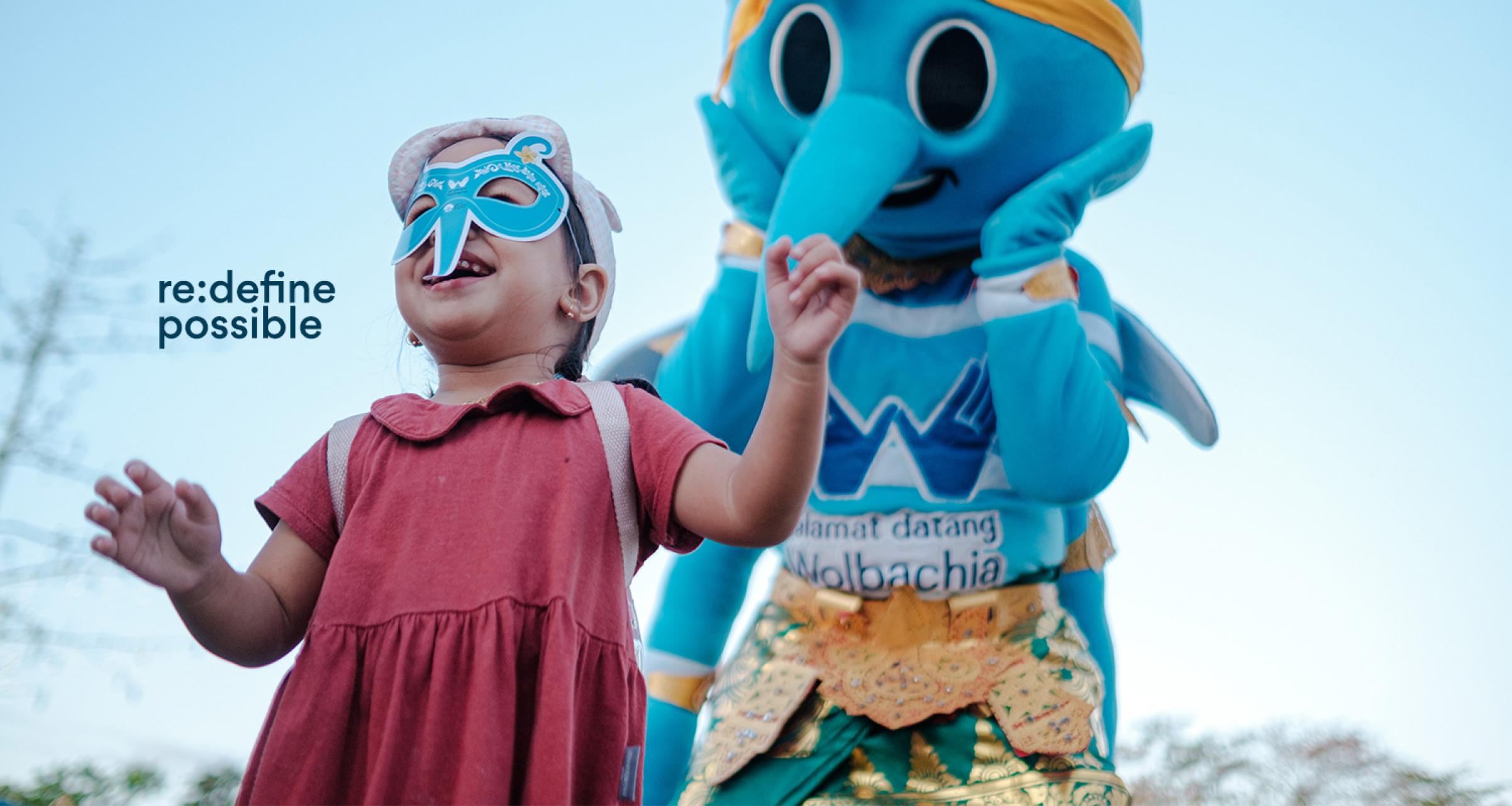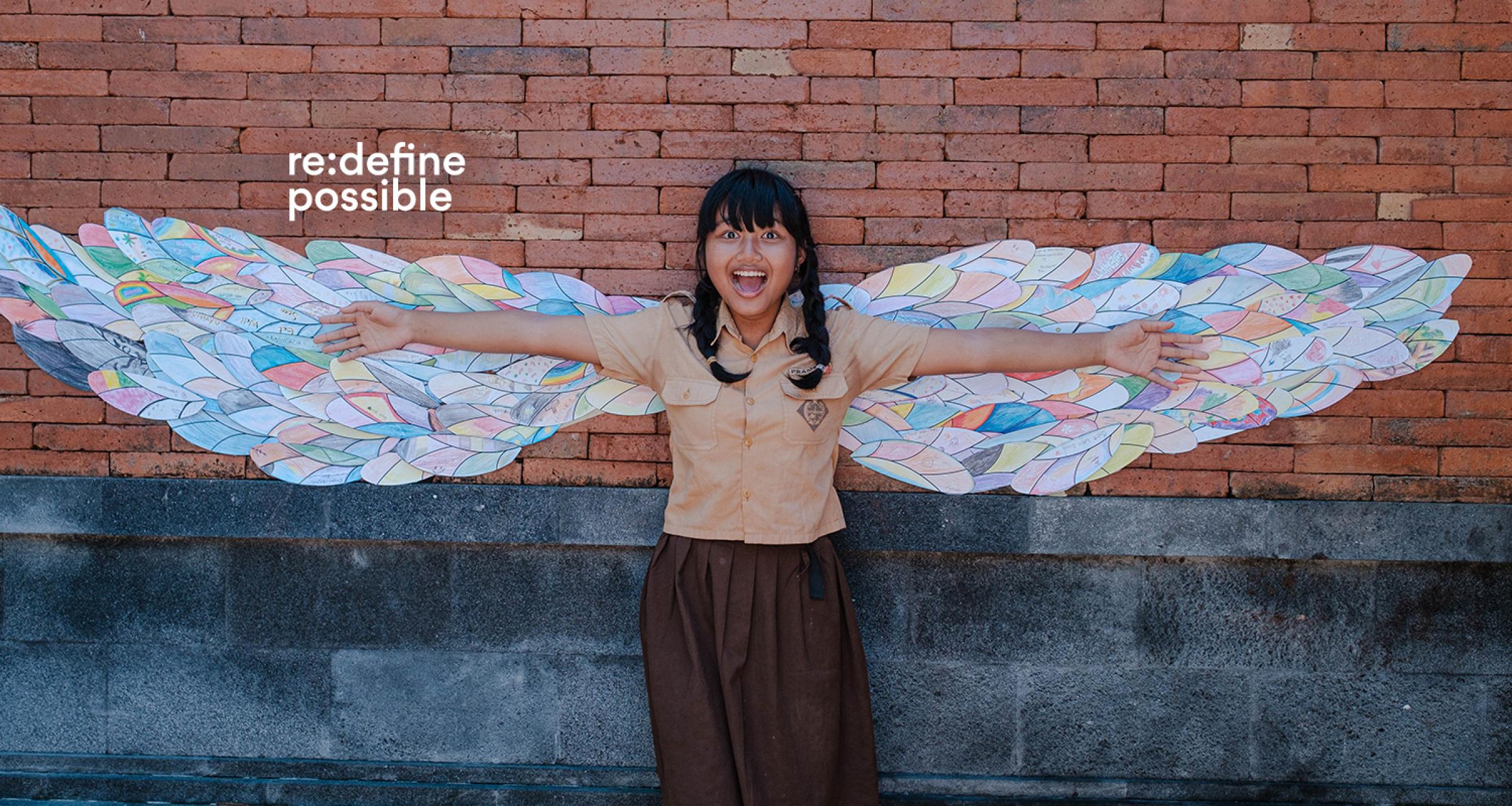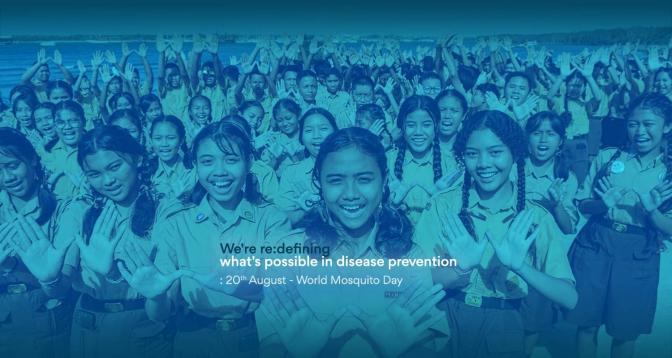The World Mosquito Program: re:defining possible through our Wolbachia Method

re:define possible
We’ve become a trusted ally - built upon decades of experience - working closely as partners with communities across the globe. As climate change accelerates mosquito-borne diseases, our nature-based Wolbachia method provides lasting protection from dengue, Zika, chikungunya, and yellow fever. Smart. Safe. Self-sustaining.

re:invest in public
health partnership
Mosquito-borne outbreaks are unpredictable, and reactive response systems are costly, slow, and often too late. The World Mosquito Program (WMP) offers a safe, scientifically proven and cost-effective alternative already successfully deployed in 15 countries worldwide. As a long-term partner in national diseases prevention strategy, our aim is to reduce future government costs and build durable public health resilience through effective national strategies.

re:place
fear with protection
Not a treatment. A shift. We’re setting change in motion with nature that heals itself. We want to reaffirm confidence in public health care and build something together. We invite communities to learn from trusted local voices, ask questions, and explore how this could work in their own setting as co-creators and stewards of the future of public health.

re:write
the global health story
Mosquito-borne diseases are a growing global crisis, but still largely underfunded and under-recognised. Imagine a prevention model that spreads naturally, protects entire regions, and keeps working long after you give. Your donation can help fund a paradigm shift, not just another intervention. This is a rare chance to fund a scientific breakthrough already showing results and redefining global health.
From single sites to national scale:
Our 2024 Annual Review
The numbers speak for themselves. 13.5 million people protected across 14 countries. More than 1 million dengue cases prevented. $331 million in healthcare costs saved.
This isn't a pilot. It's a turning point.

Stories from the field

re:define
what prevention looks like
Years of study. One breakthrough changed everything. When we rethink prevention, we redefine possible, with a solution that outlasts funding cycles. Our one-time, cost-effective investment drives long-term measurable results. The world is changing: It’s time disease prevention did too
Join the Movement
Updates on progress, impact, and what's next in our newsletter.






